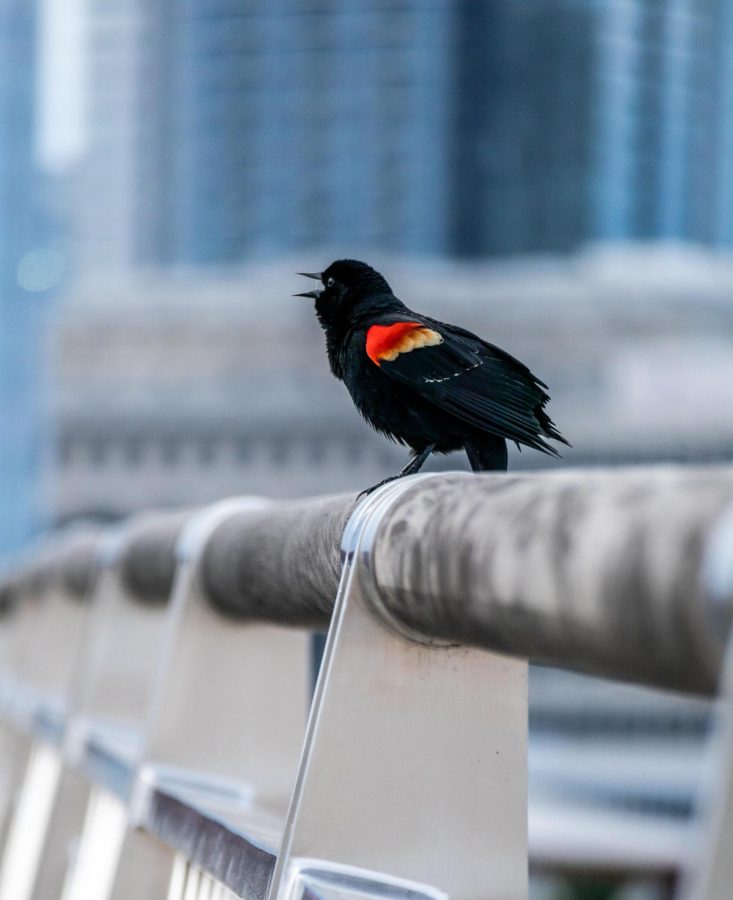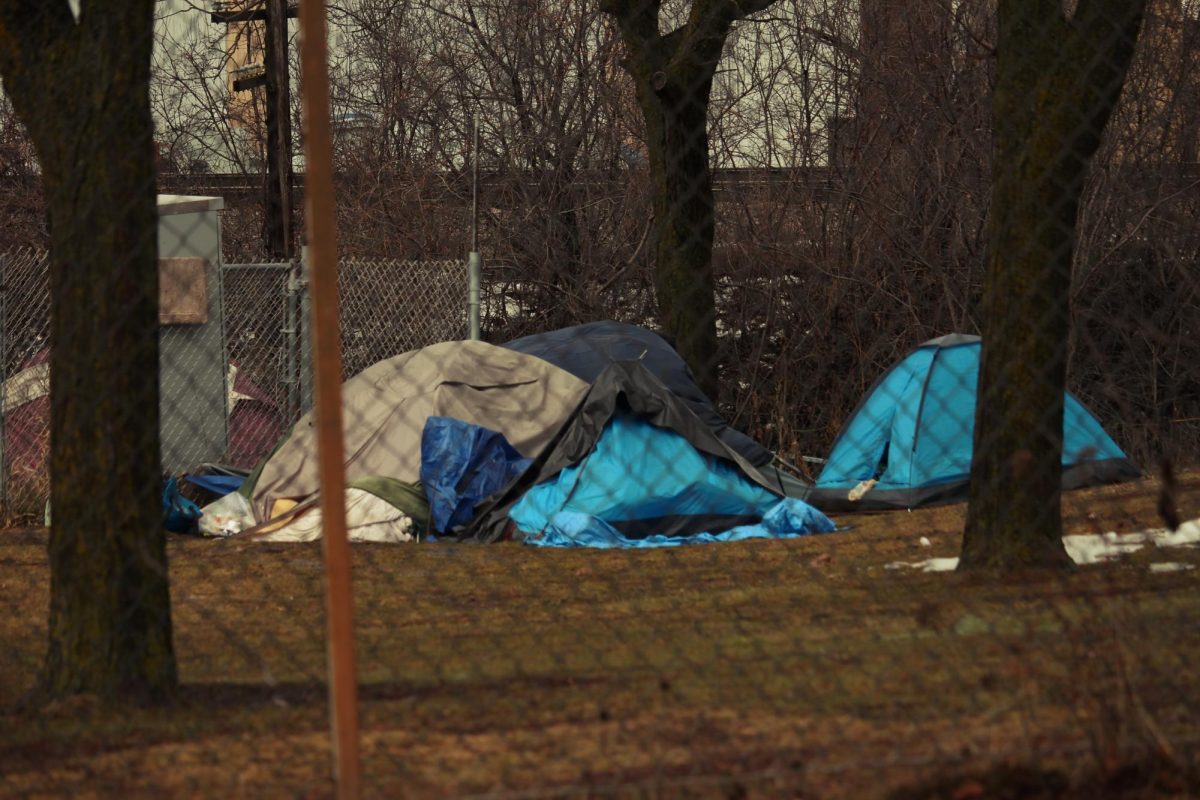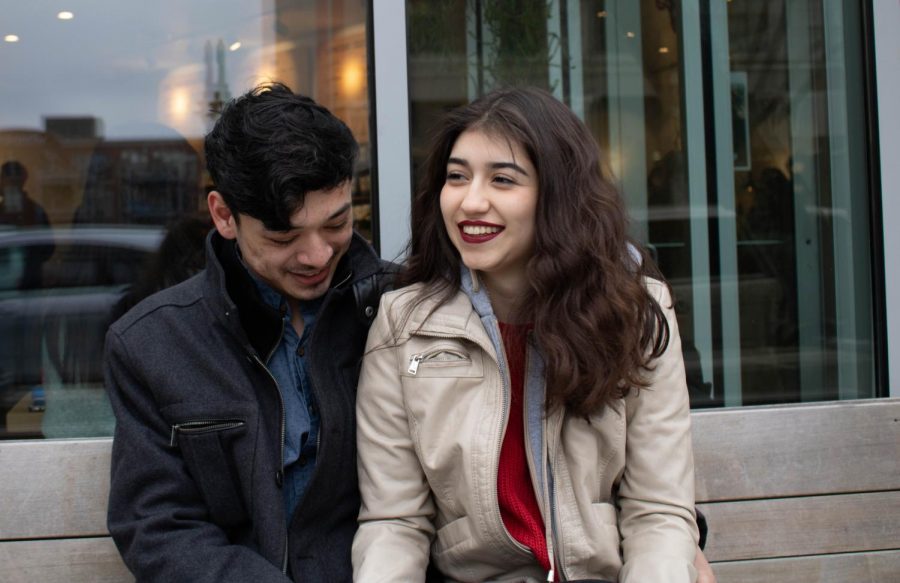City birds are taking charge of Wisconsin Avenue during the night and leaving a mess for students to face going to class the next morning. As the spring season is approaching, birds begin to start their migration to Milwaukee, most likely reaching their peak migration in mid-May.
In 2020, the Milwaukee County Parks Natural Areas Program conducted bird surveys in order to estimate the population of birds in Milwaukee County along with the number of species that exist in the county. In their results, MCP recorded 42,805 bird observations that made up 205 different bird species.
While walking down the streets of the Marquette University campus, bird poop covers the sidewalks. This begs the question, “Why do birds choose to stay in cities and densely populated areas over time?”
Chelsea Cook, an assistant professor of biological sciences, studies and teaches different behaviors behind animals. Cook said that crows are one of the smartest species of birds.
“Crows are highly intelligent. They are a part of a classification called Corvidae, generally referred to as Corvids, which include crows, ravens, and jays. These birds are all very smart – they are excellent problem solvers and can navigate complex environments to find food, which helps them survive and reproduce,” Cook said.
Cook said that the intelligence that crows possess might be the reason why they are found in some cities. She said that the restaurants and garbage on Wisconsin Avenue could be a leading indicator of why the birds are staying at Marquette.
“This is often why they are so ubiquitous in cities – there is usually a lot of food, especially in garbage cans, and especially on college campuses, where there is a particularly high density of people,” Cook said. “There are tons of restaurants as well as apartments on Wisconsin, which is why it’s a popular area for crows.”
Other than the large amounts of bird poop on campus, students also notice the large amounts of garbage and trash that are on the campus streets. Birds can easily access food from the garbage, which is why they are relocating to areas with lots of trash present.
Other than crows and city birds Zoe Finney, creative lead for the Schlitz Audubon Nature Center said to keep your eyes open for other aerial adventures flocking to the city during the migration period.
“Right now is the beginning of Spring Migration, there is probably about 300 species that will come to Wisconsin in this period…we have seen some early sparrows such as fox sparrows come though and kinglets and red wing black birds.”
Simon Glarner, a first-year in the College of Arts & Sciences, said that he has learned a lot about the birds in some of his classes. He said that they mainly focus on bird migration according to weather changes, as well as why birds end up in a populated cities rather than rural areas.
“In my environmental studies class we have learned a lot about the birds that are here on campus, and the birds that will be coming here as the weather gets warmer,” Glarner said. “I think it’s really interesting to learn about these birds because you would really not expect to see so many on a college campus in a big city.”
Vita Kovacevich, a first-year in the College of Arts & Sciences, said that she has noticed an increase of birds on campus, specifically geese.
“I have noticed the increase of geese on campus when I walk to my classes. I think they are good for the campus and they don’t bother me, so I hope they stay here,” Kovacevich said.
The Geese that are roaming the grass of campus are Canada Geese, who migrate to Wisconsin during the spring season. Benefits of these species include seed dispensary as well as added nutrient contribution to the soil from geese feces.
“It’s pretty steady through March and April but in May you can go out on a spring day and possibly find 100 different bird species, just going on a walk or going to your local nature center.” Finney said.
Finney said to keep your eyes open for warblers, which are fan favorites of the birding community. Warblers are neotropical birds which migrate from parts of Central and South America and flood into Wisconsin in parts of May.
“Warblers are typically the brightest and boldest color of birds we have come through. For example the Blackburnian Warbler, which is my favorite bird, it can travel from Colombia and into parts of Northern Wisconsin and Canada. They have a bright orange throat and orange spot on their head and it’s just a delight.” Finney said.
Finney encourages people to go out and explore their surroundings and they might be amazed by what they find in Milwaukee.
“If you find any piece of nature you don’t have to be in the woods, if you really start to walk around and pay attention to what is around you you might be surprised by what bird species are around even if in Milwaukee, no matter what time of year…even in December you can go on a bird walk and see dozens of species.” Finney said.
Cook said the relationship between humans and birds that benefit both species. She said that the bird population on campus should be no worry to students.
Connor Baldwin contributed to this report.
This story was written by Phoebe Goebel. She can be reached at [email protected]







